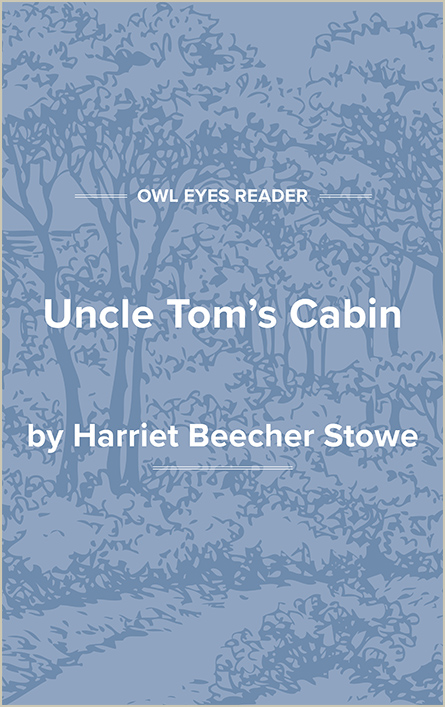Study Guide
Analysis Pages
Harriet Beecher Stowe Biography
Harriet Beecher was born in Litchfield, Connecticut, on June 14, 1811, the seventh child of Lyman and Roxana Foote Beecher. Two years after her mother’s death in 1816, Harriet’s father married Harriet Porter of Portland, Maine. Lyman Beecher, a minister in the tradition of eighteenth century preacher Jonathan Edwards, who had attempted to breathe life into old Calvinism, dominated the household. Daily family worship and religious instruction shaped the lives of all the Beecher children. All seven brothers who reached maturity became ministers, according to their father’s wishes, and the girls in the family were expected to marry ministers. Because of her father’s focus on his sons’ mental and intellectual preparation as future ministers, Harriet often felt neglected. Even on family activities, such as gathering and stacking firewood, Lyman Beecher was known to say that he wished she were a boy.
When Harriet was attending Litchfield Female Academy, she wrote her first essay, on the question “Can the immortality of the soul be proved by the light of nature?” It was read with those of the older students at the next exhibition. This experience of success, along with the pleasure of expressing herself freely to an extent hardly possible within her family, with so many older people holding the floor, awakened her love for writing when she was eleven.
After the death of her fiancé, Harriet’s eldest sister, Catherine, opened Hartford Female Seminary together with her sister Mary. When Harriet was twelve, she was placed in the seminary under her sisters’ care; as soon as she was old enough, she, too, had to assist with the teaching, a task that was a burden to her and that she did not enjoy. Catherine Beecher, who had devoted her life to female education, was said to possess the same doctrinary personality as her father, and life under her care was not a happy experience for Harriet.
In 1832, nine of the Beechers reunited and moved to Cincinnati, then the border settlement to the West. While her father was excited about the possibility of converting the West, Harriet perceived Cincinnati to be simply an uncouth town. Catherine founded and was running the Western Female Institute, and Harriet had to fall in line again, much against her own wishes. Her unhappiness became so severe that she fell ill repeatedly from the drudgery of her work and the depression accompanying it. It was there that she first visited a plantation in neighboring Kentucky and was introduced directly to issues of slavery, because in Cincinnati there were many freed and fugitive slaves.
She soon met Calvin Ellis Stowe and his wife Eliza, who became a good friend. After Eliza’s death, Harriet consoled the widower, meeting with him more and more frequently until, on January 6, 1836, she found herself marrying him—without feeling much emotion. Soon her days were filled with caring for her six children who survived childhood, the last born in 1850. Constant financial problems prompted her to support her family by writing, and she published her first writings in the Western Monthly Magazine. She was contributing sketches to the New York Evangelist, The Ladies’ Repository, and Godey’s Lady’s Book. Amid the household clutter and noise, she wrote her stories, mostly domestic fiction, later collected in The Mayflower (1843). The parlor was reserved for Mr. Stowe, who was annoyed at intrusions upon his studies. In 1850, Calvin Stowe received an appointment to Brunswick College in Maine and moved his family to New England.
After the political climate surrounding slavery changed, and the seizure and return of fugitive slaves to their owners was even preached from Boston pulpits, Harriet Beecher Stowe set out to write an antislavery story after being given an advance of one hundred dollars. Despite a long New England winter, a chaotic household, and her exhaustion from yet another birth and nursing of a child, she began poring over...
(The entire page is 976 words.)
Owl Eyes subscribers get unlimited access to our expert annotations, analyses, and study guides on your favorite texts. Master the classics for less than $5/month!

